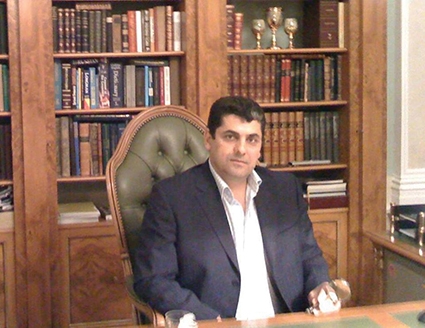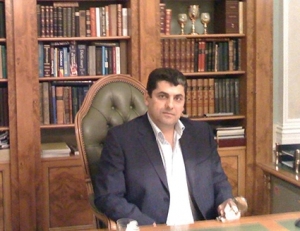On Law and the Iranian Connection
GEORGIA TODAY met businessman Gelani Khalukhaev, President of Group Anaklia and the head of a consortium of oil companies, to discuss the appeal of Georgia as a place to do business, the challenges that have to be faced and Georgian-Iranian relations.
Your company invests in the economy of Georgia. What was your motivation?
In recent years Georgia has taken a stable seat among countries with fast growing economies. Thanks to advantageous leading reforms, Georgia has become one of the most attractive countries for foreign investors. Georgian parliament accepted successful legislation in recent years, including the Law ‘on High-mountainous Territories,’ which opens the broadest possibilities for business. It is one of the reasons company ‘Anaklia’ decided to do business in Georgia.
Georgia for me is the most beautiful country in the world and, what’s more, it has a favorable geographical location that allows one to work equally conveniently for both the western and eastern markets.
Tell us about your company’s business projects and what obstacles you faced from the first day in Georgia.
The main activity of our company is connected with the processing of agricultural products, mineral water bottling, and manufacture of pharmaceutical products based on natural ingredients. In the near future, our company plans to launch a pharmaceutical factory for the production of pharmaceuticals in liquid form, based on a unique mineral water ‘Lugela’ which is known for its high content of natural calcium, an important element in the pharmaceutical industry. On the basis of ‘Lugela’ components, the company ‘Anaklia’ plans to release more than a dozen pharmaceutical and cosmetic products.
Regarding the challenges faced by foreign investors in Georgia, including our company, I would like to mention two important issues:
Georgia’s Law ‘on Land’, which restricts the right of a foreign investor to purchase land for agricultural purposes. This creates obstacles to the establishment of industrial enterprises. However, since the beginning of this year, there have been positive developments in addressing this problem.
For example: a foreign company acquires a license for the production and bottling of mineral water, in which it is stipulated that the mining claim on the well is an integral part of the license and is passed on to the licensee during the term of the license agreement. However, the structure of Nature Protection and the Ministry of Environment of Georgia advises the Ministry of Economy of Georgia, the Committee of State Property, and the Ministry of Justice that mining tracts of mineral water, according to the terms of the license agreement, are in the possession of the licensee. As a result, it is not uncommon for a third party to quietly apply for and purchase without any problems the territory of the mining lease, together with the well, and take it into private ownership. This is a flagrant violation of the Georgian Law ‘on Subsoil,’ according to which mineral resources and mining allotment are public property and can under no circumstances be sold or taken away in favor of third parties.
Your company is starting to export Georgian products to Iran. Why is this country attractive to the Georgian economy?
Georgia is interested in the Iranian market and vice versa. Georgia produces high-quality products, vegetables, fruits- a wide range of agricultural products which are very popular in Iran. In return, hydrocarbons and their derivatives, and technological equipment manufactured in Iran, which is no inferior in quality to the best world analogues, metal, and more are of interest to Georgia. The proximity of Iran and Georgia, their age-old cultural and economic ties, open up opportunities for a fruitful, mutually beneficial cooperation between the representatives of both countries. I am confident that the availability of these potential opportunities in both countries will be actively implemented in the near future.
Born in 1962, Gelani Khalukhaev received his education from Tbilisi State Theatrical Institute and graduated from the Russian Academy of Public Administration under the President of the Russian Federation, Department of Public Service and Personnel Policy (Sociology). He has held a number of positions, at present he is working as the head and director of the group company ‘Anaklia’ in Tbilisi.
Dimitri Dolaberidze











